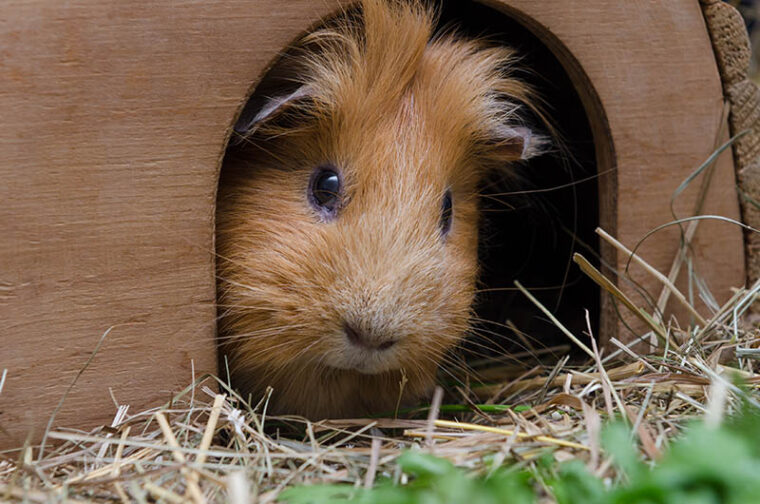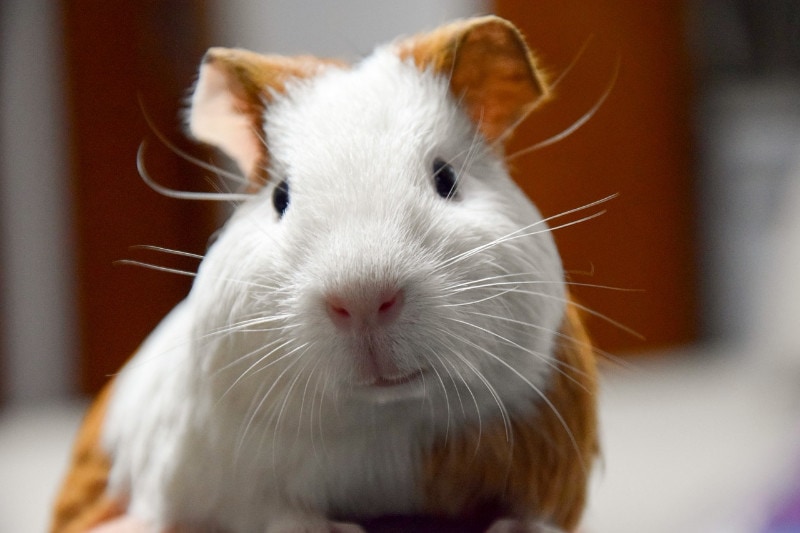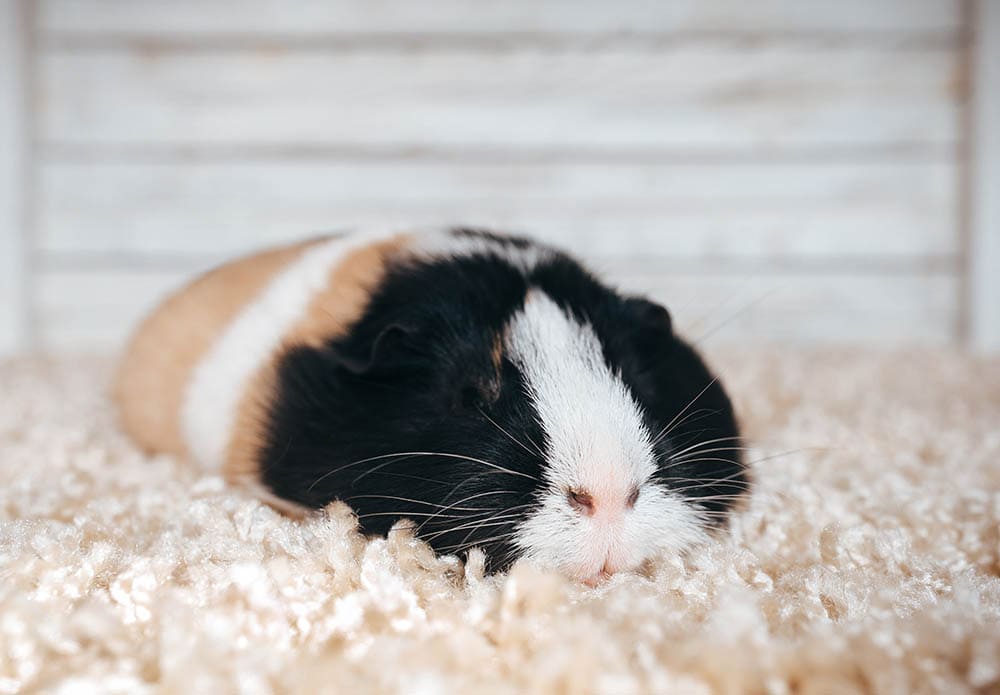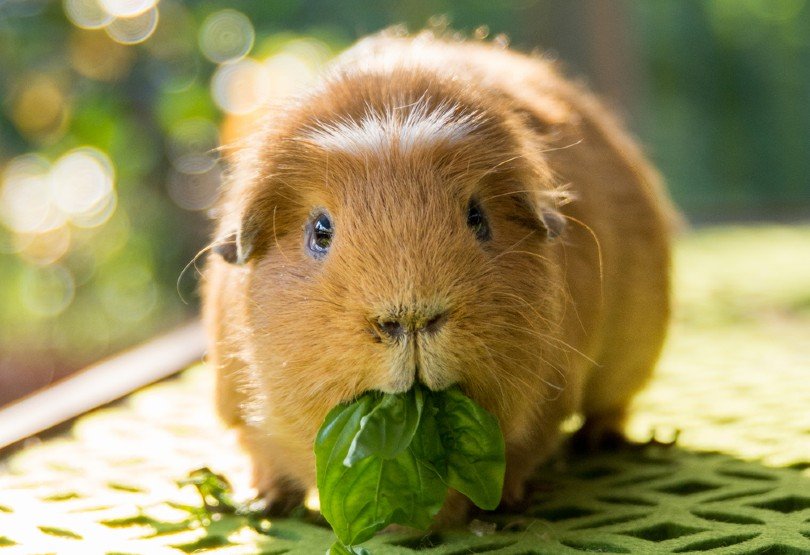
While not the most popular pet in the United States, there are still approximately 1.5 million homes with Guinea Pigs. Considering that many guinea pig enthusiasts have more than one of these adorable creatures, that means about 4 million Guinea Pigs live in America, which we think you’ll agree is a lot of Guinea Pigs. Although they can go into a state of lowered metabolism, it’s unusual for Guinea Pigs to hibernate under normal circumstances.
Yes, they might lie motionless for an extended time, but that’s far different from true hibernation. There is, however, one species of guinea pig in Europe that does hibernate (more on them below), but they aren’t typically kept as pets and are found mostly in the wild.
Knowing that pet Guinea Pigs don’t hibernate, you probably have other questions about this mesmerizing mammal. What will cause a guinea pig to go into a state of lowered metabolism, for example, and why do some Guinea Pigs stay so still for such long periods? Below are the answers to those questions and some excellent tips for keeping your guinea pig healthy and happy.
Why Do Guinea Pigs Not Hibernate?
The reason that Guinea Pigs don’t hibernate likely comes from eons of evolution, especially considering that other small mammals like hamsters do hibernate. Guinea Pigs have evolved to the point where they don’t need to hibernate for survival, and of course, those kept as pets have even less risk of death due to winter’s chill.
As to the exact reason Guinea Pigs don’t hibernate while many other similar animals do, the likely reason is that Guinea Pigs come from areas of the world that are warm and humid and stay that way throughout the year. Most animals that hibernate do it because they need to survive a long, harsh winter with little or no food. In warm weather, there’s never a need to do that because it rarely gets cold.

Do Guinea Pigs Do Anything That Looks Like Hibernation?
One reason many believe Guinea Pigs hibernate is that, when they get cold, they sleep so long and soundly that it appears as if they’ve hibernated. When they’re cold, Guinea Pigs will temporarily slow their metabolism to conserve energy and stay warm. With its metabolism slowed your Guinea Pig may appear to be lifeless when, in fact, it’s perfectly fine and trying to stay warm. If your guinea pig does this all the time and stays motionless for hours on end, you might need to raise the temperature where it’s kept.
How Do Guinea Pigs Conserve Their Energy if They Don’t Hibernate?
As we mentioned, a guinea pig conserves energy by staying motionless and reducing its metabolism. Typically, Guinea Pigs do this when they are cold or sometimes when they’re tired. A guinea pig will conserve significant amounts of heat by staying still and slowing down its heart rate and blood pressure. What’s worth noting is that since most pet Guinea Pigs are fed regularly, and few suffer from food stress, there’s less of a need for a healthy, warm guinea pig to conserve its energy.

What Temperature Is Best for a Guinea Pig to Stay Healthy?
If your guinea pig is always displaying this behavior, the temperature where you keep it in your home may be too cold. For a guinea pig to stay healthy, the temperature needs to be 60 degrees Fahrenheit or higher. Also, it would be best if you didn’t keep a guinea pig where the temperature gets over 85 degrees Fahrenheit. Between 60 and 85 degrees is the best temperature to ensure your guinea pig stays healthy.
Do Some Species of Guinea Pig Hibernate?
In the mountains of central and southern Europe, there is a guinea pig species that hibernate. The Alpine guinea pig is very similar to other guinea pig species in size and weight, and it will hibernate up to 9 months out of the year, which is an exceptionally long time. Their hibernation time changes every year based on the weather. Fouler weather means a longer hibernation, while better weather is just the opposite and means they will hibernate less.
To survive hibernation, the Alpine guinea pig, like most mammals, eats a massive amount of food and stores it as fat in its body. While hibernating, it will survive on the stored fat, and, like its cousin, the domesticated guinea pig, the Alpine guinea pig will lower its metabolism to conserve energy, including its heart rate, breathing, and body temperature.

What Does It Mean When a Guinea Pig Turns on Its Side?
If your guinea pig is lying still on its side and motionless, you might think the poor thing has died, but, in most cases, it’s shut down its metabolism because it’s cold. If your guinea pig is constantly inactive and motionless but has no other signs of sickness, turning up the heat where it lives is probably the best solution.
Another reason your guinea pig might be lying on its side is that, like a dog, cat, or another animal, the position feels good and comfortable. They might also be showing that they feel safe, so if you see your guinea pig stretch like a cat, it’s almost a guarantee they are content.
Conclusion
Except for the Alpine Guinea Pig, there are no species of Guinea Pigs that hibernate. There’s no need for them to do so because Guinea Pigs come from a part of the world with a warm climate and never evolved to need hibernation for survival. Guinea pigs will, however, go into a deep, sleep-like state by lowering their metabolism.
In most cases, your guinea pig is simply cold and trying to reserve its heat and energy. Once you increase the heat and your precious piggy’s living area is cozier, they will become more active again.
Featured Image Credit: Dev_Maryna, Shutterstock







